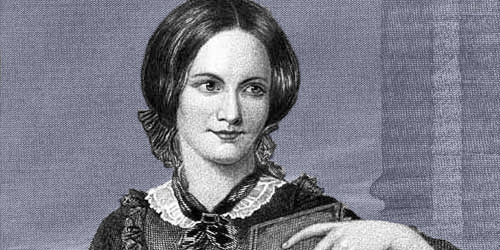
Ellen Nussey was as good as a sister to the Brontë family—in fact, the five hundred plus letters of Nussey’s correspondence with Charlotte served as primary source material for Brontë biographer Elizabeth Gaskell. In the rather sad message below, Charlotte confides in her friend about the visiting suitor, Arthur Nicholls, who would soon become her husband—despite her father’s (and her heart’s) protests.
Haworth
December 18th, ‘52
Dear Nell:
You may well ask, How is it? for I am sure I don’t know. This business would seem to me like a dream, did not my reason tell me it has long been brewing. It puzzles me to comprehend how and whence comes this turbulence of feeling.
You ask how Papa demeans himself to Mr. Nicholls. I only wish you were here to see Papa in his present mood: you would know something of him. He just treats him with a hardness not to be bent, and a contempt not to be propitiated. The two have had no interview as yet; all has been done by letter. Papa wrote, I must say, a most cruel note to Mr. Nicholls on Wednesday. In this state of mind and health (for the poor man is horrifying his landlady, Martha’s mother, by entirely rejecting his meals) I felt that the blow must be parried, and I thought it right to accompany the pitiless despatch by a line to the effect that, while Mr. Nicholls must never expect me to reciprocate the feeling he had expressed, yet at the same time I wished to disclaim participation in sentiments calculated to give him pain; and I exhorted him to maintain his courage and spirits. On receiving the two letters, he set off from home. Yesterday came the enclosed brief epistle.
You must understand that a good share of Papa’s anger arises from the idea, not altogether groundless, that Mr. Nicholls has behaved with disingenuousness in so long concealing his aim, forging that Irish fiction, etc. I am afraid also that Papa thinks a little too much about his want of money; he says that the match would be a degradation, that I should be throwing myself away, that he expects me, if I marry at all, to do very differently; in short, his manner of viewing the subject is, on the whole, far from being one in which I can sympathize. My own objections arise from a sense of incongruity and uncongeniality in feelings, tastes, principles.
How are you getting on, dear Nell, and how are all at Brookroyd? Remember me kindly to everybody. Yours, wishing devoutly that papa would resume his tranquility, and Mr. N. his beef and pudding,
C. Brontë
From The Brontë Letters. Ed. by Muriel Spark. New York: Macmillan, 1966.
FURTHER READING
Brontë’s true love.
A tribute to her last days.
The Economist provides a tidy dissection of Brontë’s lingering appeal.


